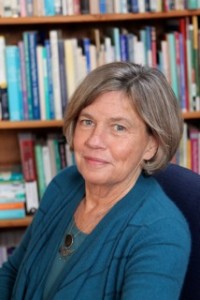An interview with Dr. Nancy Carlsson-Paige
by Jackie Dee King
When U.S. Education Secretary Arne Duncan comes to Harvard University this month to preside as Grand Marshal in his 25th Class Reunion, not everyone will be cheering.
Prominent national advocates for public education, along with dozens of local parents and teachers, will be rallying in Harvard Square to challenge Duncan’s destructive, market-based education “reform” policies.
Organizers are calling on public education supporters to gather in “The Pit” behind the Out of Town News kiosk in Harvard Square at 10:00 a.m. on Thursday May 26th for a rally and then a march around Harvard Yard, where the reunion program will be taking place. Rally speakers will include Nancy Carlsson-Paige, Deborah Meier, Alfie Kohn, Lisa Guisbond, Ruth Rodriguez Fay, Larry Aaronson, Larry Ward, and others.
“The education ‘reform’ movement is destructive in so many ways – to education, teachers, children, to society and to democracy,” according to Nancy Carlsson-Paige, a professor of education at Lesley University and a well-known specialist in early childhood education, who is one of the rally organizers.
“They promote the idea that the achievement gap exists because of bad teachers and we can close it by testing,” she said in a recent interview. “We then base everything on testing, whether measuring students’ progress, teachers, or schools.
“It’s all about ‘holding teachers accountable.’ What never gets addressed are the underlying inequities in society and in educational opportunity,” Carlsson-Paige noted. “Poor children come to school, many having to cope with homelessness, hunger, illness or trauma. It is so wrong to blame teachers for social and economic inequalities that affect children’s school performance and to claim that teachers alone can close the achievement gap.
“Students from different backgrounds have access to widely different schooling,” she added. “So often, children in low-income communities are forced into a lock-step, inadequate, and under-resourced education.”
“As a professor of education, an educator of teachers, and someone who creates curriculum,” Carlsson-Paige said, “I see the harm education reform is causing children—the disappearance of play, creativity, and the arts from our schools. Evaluation is now driving curriculum, and curriculum is being reduced to something mechanistic. This isn’t real learning. Children are learning information by rote in the early years that cannot give them the solid foundation of knowledge they need to build on, as school continues. And the ‘drill and kill’ methods turn kids off from school early on and keep them from discovering the joy in learning. And this is mostly about poor children, because more well-to-do communities are able to provide all kinds of compensatory learning activities, such as trips to the museums, theater and music programs, summer camps.
“We’re losing out on the opportunity to have a well-educated citizenry,” she said. “True citizens need to be able to not take things at face value, to think critically, to question authority. Tests don’t measure critical thinking or imagination. They reduce the whole learning process to lower level kinds of information that can be tested. It’s really sad and scary to see this happening.”
Carlsson-Paige deplored the fact that education reform is being driven by businessmen, politicians, and wealthy foundations who don’t understand education and want to subject it to business values, including privatization. “Public education is the primary democratic institution we have left, and it is eroding out from under us,” she said. “I fear that one day, the American people are going to wake up and realize that we don’t have a public education system anymore.”
However, she added, “There are rumblings beginning to be heard. I see more and more people questioning what is happening in education. Many people realize they are losing local, community control of their schools. People are starting to organize. Groups such as Parents Across America and Citizens for Public Schools are gaining momentum. Every day more people sign on to the Save Our Schools movement that is organizing the March on Washington D.C. in July. These signs, among many others, give us hope that change will come – and, as it always does, from the bottom.
[To return to the Backpack, close browser.]


